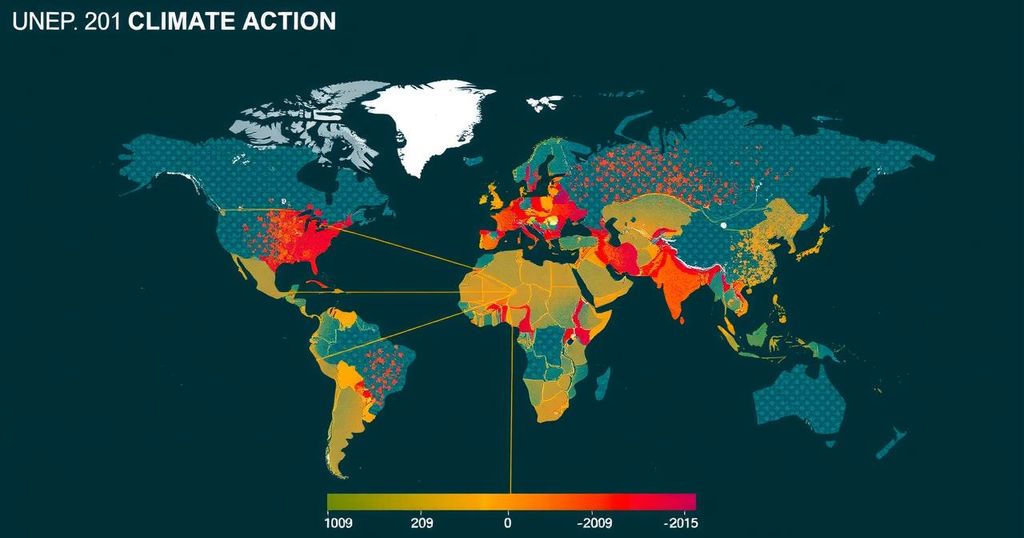The United Nations Environment Programme (UNEP) has urged nations to urgently close the emissions gap outlined in its 2024 report titled “No More Hot Air…Please,” advocating for a 42 percent reduction in greenhouse gas emissions by 2030 to mitigate severe climate impacts. The report asserts that keeping global warming within 1.5 degrees Celsius is achievable through cleaner fuel transitions and habitat restoration, highlighting the record high greenhouse gas emissions since 2019. Renewable energy technologies and halting deforestation play critical roles in achieving these climate goals.
Nairobi, Oct 25 (SocialNews.XYZ) – The United Nations Environment Programme (UNEP) has emphasized the urgent need for nations to bridge the significant emissions gap identified in new climate pledges, requiring immediate and decisive action. In the latest Emissions Gap Report for 2024, titled “No More Hot Air…Please,” UNEP calls for a collective annual reduction of greenhouse gas emissions by 42 percent by the year 2030 to prevent severe consequences associated with global temperature increases. The report indicates that maintaining global warming within the 1.5 degrees Celsius threshold set forth in the Paris Agreement is feasible, contingent upon a persistent shift towards cleaner energy sources and the restoration of natural habitats. Inger Andersen, Executive Director of UNEP, remarked that fulfilling carbon reduction commitments is vital to avert disasters such as extreme weather events, including floods, droughts, cyclones, and wildfires. “Every fraction of a degree avoided counts in terms of lives saved, economies protected, damages avoided, biodiversity conserved and the ability to rapidly bring down any temperature overshoot,” stated Andersen. Scheduled for release prior to the upcoming UN Climate Change Conference in Baku this November, the report highlights that greenhouse gas emissions have surged to an unprecedented 57.1 gigatons of carbon dioxide since 2019. It identifies the growing technologies in wind and solar energy as capable of contributing 27 percent to total emission reductions by 2030, escalating to 38 percent by 2035. Furthermore, the report underscores the necessity of halting deforestation and implementing effective strategies such as enhancing sustainability in transportation, building sectors, and industry to meet carbon reduction goals.
The UNEP’s Emissions Gap Report serves as a critical assessment of the disparity between current emissions trends and the levels needed to mitigate climate change. Emphasizing the scientific consensus on the need to limit global temperature rise to 1.5 degrees Celsius, it outlines specific strategies and technological advancements required to achieve these targets. The report serves not only as a wake-up call for nations but also as a guidance document articulating practical steps towards achieving global climate objectives. Addressing the increasing greenhouse gas emissions, the UNEP highlights the role of renewable energy and sustainable practices in fostering a healthier planet.
The UNEP’s call to action reflects a growing urgency in addressing climate change through substantial reductions in greenhouse gas emissions. By endorsing a comprehensive strategy that encompasses shifts to renewable energy and ecosystem restoration, countries can potentially avert catastrophic climate impacts. The report underscores the critical nature of international cooperation and individual commitment to achieving the necessary targets by 2030, ensuring a sustainable future for generations to come.
Original Source: www.socialnews.xyz






